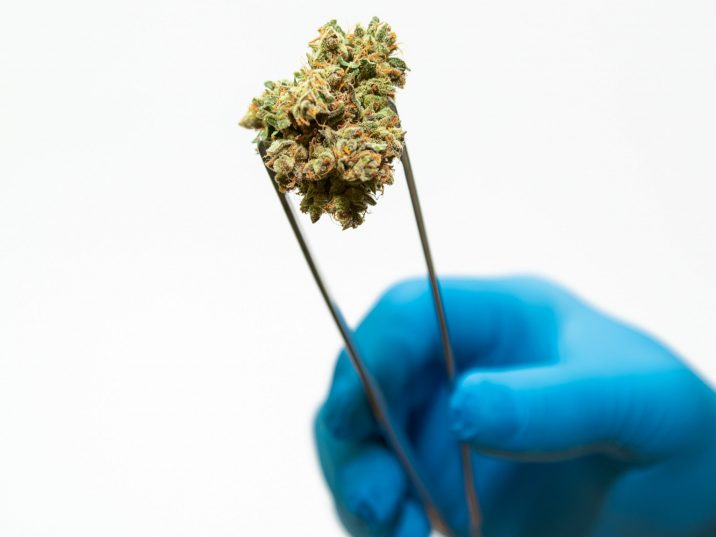How will marijuana use affect us when we're older?

What effect does marijuana have on the aging body? In partnership with the National Institute of Health, the University of Iowa plans to find out with a first-of-its-kind research project.
Neurologist and radiologist Dr. Thorsten Rudroff, whose background includes a PhD in neurophysiology and a degree in physical therapy, is heading up the study. Exploring cognition, motor function, balance and other elements of the human body, Thorsten believes the time has come to “find out if medical marijuana increases this risk of cognitive issues and which products with higher or lower THC content, are safe to use.”
Known for stricter marijuana laws compared to other midwestern states, Iowa has faced uncertainty about whether it would allow recreational marijuana. With over 78% of residents stating they want medical marijuana accessible, Dr. Rudroff’s research has already gained attention of local and national residents explaining, “The response (to the study) so far is great. Many older people are interested and want to participate, and this shows (marijuana) is a hot topic here in Iowa.” Because many individuals responding to the study are medical marijuana users wanting to gain more information, the research team is hoping this will affect patients for years to come.
And just this week the Iowa Senate and House moved to seek to raise the cap on THC, removing 3% of the cap on medical cannabis products being sold and allowing for products to have more THC than in the past.
In an exclusive interview with The Fresh Toast, Dr. Rudroff shared that the impetus for creating a study around older adults and marijuana use was to look at how individuals are using or thinking about using marijuana and unforeseen outcomes. His research hopes to address safe and effective ways medical marijuana is used when cognitive impairments are in place. Questions he looks to answer are:
- Could medical marijuana further increase cognitive impairments and the risk of falls in older adults?
- Does a higher or lower THC count increase the risk, and which is safer to use?
- When addressing pain, are there safe and effective treatments with marijuana that can be used for individuals who experience cognitive impairments?
- Could marijuana be a safe alternative to opioids for those in his study and beyond?
- Are there guidelines for self-medication that should be in place but currently don’t exist?
Summing it up in a sentence, Dr. Rudroff explained, “At the end of the study I hopefully have an answer which products, high THC or high CBD products, can effectively treat pain without the risk of falls or other negative side effects.”
Those interested in the study can contact Dr. Rudroff at the University of Iowa directly.
Following current Iowa laws, they can only recruit individuals who are already in the Iowa Medical Cannabinol Program, but others may apply to the control group, who are not currently using medical marijuana but are considering using the medicine.
420 Intel is Your Source for Marijuana News
420 Intel Canada is your leading news source for the Canadian cannabis industry. Get the latest updates on Canadian cannabis stocks and developments on how Canada continues to be a major player in the worldwide recreational and medical cannabis industry.
420 Intel Canada is the Canadian Industry news outlet that will keep you updated on how these Canadian developments in recreational and medical marijuana will impact the country and the world. Our commitment is to bring you the most important cannabis news stories from across Canada every day of the week.
Marijuana industry news is a constant endeavor with new developments each day. For marijuana news across the True North, 420 Intel Canada promises to bring you quality, Canadian, cannabis industry news.
You can get 420 Intel news delivered directly to your inbox by signing up for our daily marijuana news, ensuring you’re always kept up to date on the ever-changing cannabis industry. To stay even better informed about marijuana legalization news follow us on Twitter, Facebook and LinkedIn.




